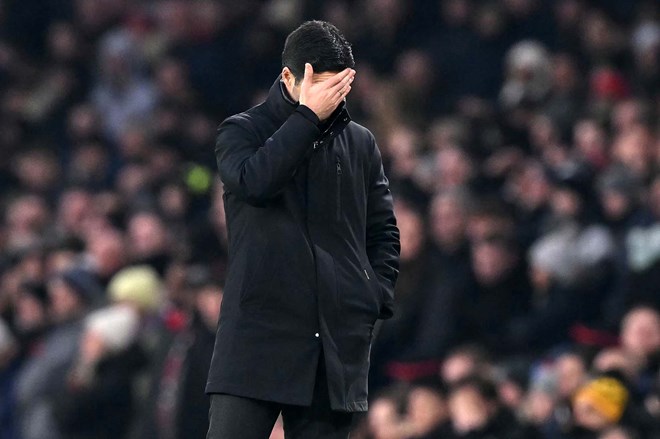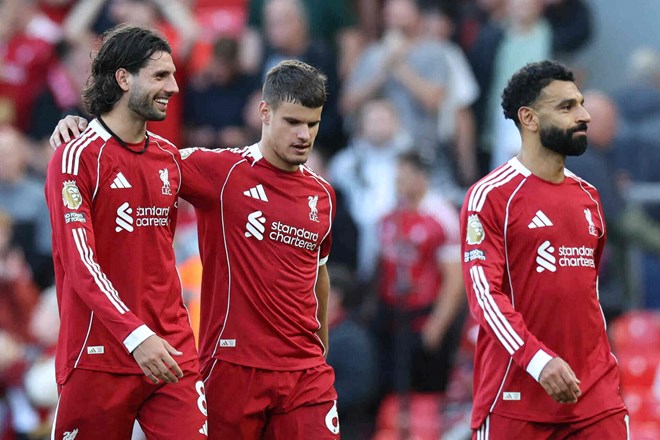Last Sunday, coach Fabian Hurzeler made four substitutions as the match against Manchester City had just passed for about an hour.
Brighton played uncertainly, had difficulty in creativity and was 1 goal behind. However, personnel changes changed the situation, helping them win 2-1.
"Sometimes, my body says something. Not only in football but in life in general, you need to be brave to make the decisions you really want to make" - Hurzeler explained.
Hurzeler stressed the players, their energy and confidence, while affirming that substitution was a collective decision of the coaching staff. Modern football management is associated with data, analysis, detailed planning and careful programming. But in the end, what decided the victory was Hurzeler's intuition.
Of course, Hurzeler's perception is not natural, but is built from many years of observation and experience. However, the ability to feel the game - not only to grasp technical details, but also to read and shape emotional fluctuations - is often underrated.

The most recent example of a coach grasping the psychology of a match and reacting appropriately was probably in March 2019. At that time, Manchester United traveled to Paris St-Germain after a 0-2 defeat in the first leg of the round of 16 of the Champions League.
By the end of the first half at the Parc des Princes, it was unbelievable that the "Red Devils" had taken a 2-1 lead. Many people want Man United to rush up to find a third goal to win thanks to the away goal rule. But Ole Gunnar Solskjaer kept the team slow. PSG are happy with that, as they are still leading 3-2 after two games. But it was only in the last 15 minutes that Man United really attacked.
They do it with great confidence. Solskjaer himself is the embodiment of the decisive goals of the last minute in Man United's history. PSG collapsed again, as usual when the pressure increased. Man United was awarded a penalty, Marcus Rashford successfully fired, and they continued thanks to the away goal rule.
For the majority of fans, football is not just an allocation of resources or a perfect plan. It is also about seizing opportunities, integrating into the emotional rhythm of the game - where a decision at the right time can bring glory. That feeling was especially evident last weekend, with the contrast between Brighton and Arsenal.
Liverpool are fragile. They have conceded 2 goals in all 3 matches at the beginning of the season. One midfielder has to play as a right-back, while the new left-back is uncertain. The midfield is still struggling with the new system. Crystal Palace, Bournemouth and Newcastle all caused them to stumble when attacking.
So what would happen if Arsenal pressured Liverpool from the start, taking advantage of the first 20 minutes to put pressure? If they exploited Noni Madueke's speed more when facing Milos Kerkez? If they test Dominik Szoboszlai's defensive ability?
A similar scenario appeared at the Etihad last season. Arsenal were leading at the time, but chose to defend and defend their top spot rather than seek a victory to overcome Man City. That decision leaves them vulnerable to Man City's winning streak and their own setbacks.

Of course, there is a good chance that Arsenal were caught by Liverpool right after the break at Anfield. They are also without Bukayo Saka and Kai Havertz, Martin Odegaard is only fit enough to sit on the bench, while William Saliba has to leave the pitch early.
But that raises the question: How much confidence does Mikel Arteta have in the squad and the new recruits, when the reaction is just a negative one?
By choosing a cautious approach, Arsenal gave the initiative to their opponents. In the second half, Liverpool held the ball up to two-thirds of the time before scoring. It was an unusually excellent goal, but it only happened in the context that The Gunners allowed The Kop to qualify to control the ball.
Modern football may prioritize data and tactical models, but sometimes, football as well as life, is a story of emotions, moments and the ability to grasp.











